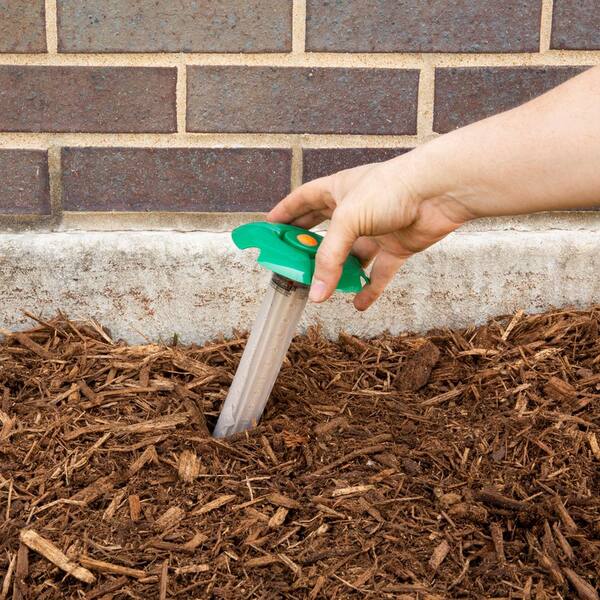Ecological Effect of Insect Control: Balancing Efficiency With Sustainability
The ecological influence of bug control is a critical issue that needs a fragile balance between achieving performance in making certain and taking care of insects sustainability of our environments. As we aim to shield our plants, homes, and health and wellness from the threats presented by parasites, the approaches we employ can unintentionally hurt the atmosphere. From making use of unsafe chemicals that leak right into our soil and water to the unintended repercussions on non-target varieties, the repercussions of traditional bug control techniques are far-reaching. There are emerging techniques that supply hope for a more sustainable method to pest monitoring. These remedies not just objective to resolve the immediate pest issues however also think about the long-lasting health of our world.
Unsafe Chemicals in Parasite Control
The utilization of hazardous chemicals in bug control positions significant environmental and health and wellness threats that require mindful consideration and reduction approaches. Herbicides, pesticides, and insecticides are typically utilized to eradicate pests, but their prevalent application can bring about unexpected repercussions. These chemicals can contaminate soil, water resources, and the air, impacting not just the targeted insects yet additionally useful insects, wildlife, and people.

To deal with these risks, incorporated bug monitoring (IPM) techniques are being advertised as a much more sustainable option. IPM includes a combination of methods such as biological control, habitat control, and the targeted use chemicals as a last resource (ant control albemarle nc). By taking on an all natural strategy to pest control, we can minimize the ecological and health impacts connected with dangerous chemicals while successfully managing pest populations
Effect On Non-Target Variety
Thinking about the unintended repercussions of pest control methods, the impact on non-target species is a critical aspect that requires extensive evaluation. While parasite control actions aim to target details pests, various other microorganisms in the ecological community may be unintentionally affected. Non-target types, consisting of useful insects, birds, mammals, and even plants, can suffer indirect or direct harm from chemical applications or biological control approaches.
Insecticides designed to fight a particular insect bug may damage pollinators like bees or natural predators such as ladybugs. Organic control agents, if not species-specific, can present risks to unintentional targets, interfering with the ecological balance.
To alleviate the effect on non-target species, integrated pest monitoring (IPM) methods that stress an all natural strategy to pest control are recommended. These methods prioritize using eco-friendly practices, reducing damage to beneficial microorganisms while effectively taking care of pest populations. Performing thorough danger analyses and monitoring the outcomes of bug control efforts are important action in guarding non-target types and advertising general ecosystem health.
Soil and Water Contamination
Unexpected ecological repercussions of parasite control methods expand beyond impacting non-target varieties, with significant ramifications for dirt and water contamination. Chemicals, herbicides, and chemical fertilizers used in insect control can seep into the dirt and infect groundwater, positioning a hazard to both terrestrial and aquatic environments. Dirt contamination can disrupt the equilibrium of bacteria vital for vitamins and mineral biking and plant growth, leading to reduced soil fertility and performance. These chemicals can persist in the setting for extensive durations, collecting in the dirt and potentially going into the food chain.
Water contamination is another essential problem linked with pest control techniques. To alleviate dirt and water contamination from parasite control tasks, incorporated insect management techniques that prioritize sustainability and lessen chemical inputs are vital.
Air Pollution From Chemical Usage
Direct exposure to airborne pesticides during agricultural applications presents a considerable issue for air contamination control actions. Additionally, pesticide drift, where chemicals are lugged by the wind to unintentional locations, can lead to the contamination of neighboring ecological communities and water bodies.

Methods for Sustainable Pest Control
In the world of agricultural methods, executing sustainable pest control techniques is extremely important for maintaining ecological equilibrium and guarding plant returns. Sustainable pest control emphasizes the usage of ecologically friendly techniques to handle pest populaces efficiently while lessening harm to non-target organisms and communities. Integrated Pest Monitoring (IPM) is a widely taken on approach that combines biological, cultural, physical, and chemical control approaches to attain lasting bug management remedies.
Crop turning and diversification are additionally reliable techniques to interrupt pest life cycles and produce much less favorable conditions for bugs to thrive. Inevitably, by integrating these lasting pest control approaches, farmers can accomplish an equilibrium between pest monitoring performance and ecological stewardship.
Final Thought
In verdict, the environmental influence of bug control approaches must be very carefully thought about to stabilize effectiveness with sustainability. Dangerous chemicals made use of in parasite control can bring about soil and water contamination, air contamination, and injury non-target varieties - ant control. It is essential to implement sustainable bug control techniques to minimize these unfavorable results on the atmosphere and advertise a much healthier ecological community for future generations
By adopting an alternative method to pest control, we can reduce the ecological and health influences linked with dangerous chemicals while properly handling pest populations.

To reduce the air pollution caused by chemical use, it is important to adopt integrated pest management approaches that prioritize the use of non-chemical pest control techniques, such as plant turning, natural killers, and resistant crop selections. Lasting bug control stresses the use of ecologically friendly techniques to view manage insect populaces successfully while decreasing injury to non-target microorganisms and communities. Integrated Pest Administration (IPM) is an extensively adopted technique that combines organic, social, physical, and chemical control techniques to attain lasting parasite administration options.